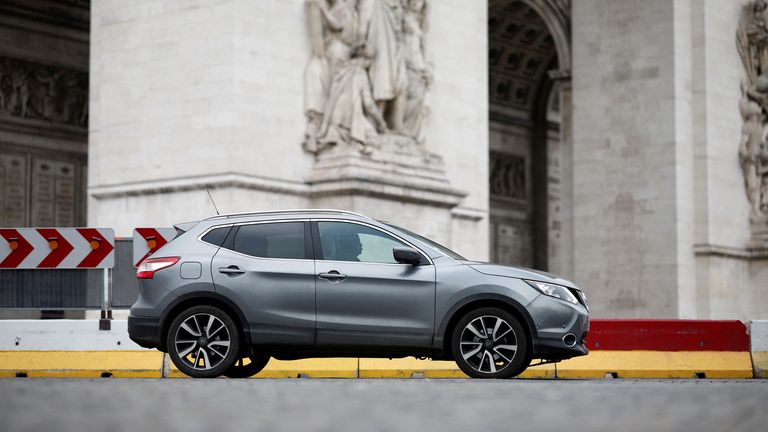Parking charges for some SUV cars in Paris are set to triple, after a landmark vote passed on Sunday evening.
Some 54.5% of Parisians voted to increase the price of parking passes for cars weighing more than 1.6 tonnes from outside the city.
Just 5.7% of voters turned out in the referendum, which asked if voters were “for or against the creation of a specific rate for the parking of heavy, bulky, polluting individual cars?”
It is the latest effort by Socialist mayor Anne Hidalgo to make the host city for this year’s Olympic Games greener and friendlier for pedestrians and cyclists.
The cost to park SUVs in Paris’s central districts for drivers that do not have a special licence from local authorities is set to soar to €18 (£15) per hour for the first two hours, compared to €6 (£5) per hour for smaller cars.
After that, parking will become increasingly punitive.
A six-hour stay with an SUV will cost €225 (£192), compared to €75 (£64) for smaller vehicles.
The new tariff would also apply to electric cars of two tonnes or more.
After the results were announced, Ms Hidalgo said: “We’re proud of having posed an eminently environmental question at a time the environment is presented as the source of all evil.
“It’s a form of resistance here in Paris to this very concerning movement.”
But the plan infuriated drivers, with the motorists’ lobby group “40 millions d’automobilistes” launching a petition to support drivers’ freedom to use whichever vehicle they want.
“We must firmly oppose these attacks on freedom pursued under false green pretexts,” the group said.
Read more:
Forest fire kills at least 46 in Chile
Cosmonaut breaks record for most time in space
Former Hamas hostage ‘threatened with knife’ during ordeal
“If we don’t stop it now, this unjustified rebellion led by an ultra-urban and anti-car minority will spread like gangrene to other cities.”
The vote, part of long-term plans for Paris to become a bikeable city, comes less than a year after city residents voted to ban e-scooters.
Under Ms Hidalgo, 84 kilometres of cycle lanes have been created since 2020, with a 71% jump in bike usage between the end of the COVID lockdowns and 2023, according to City Hall.

